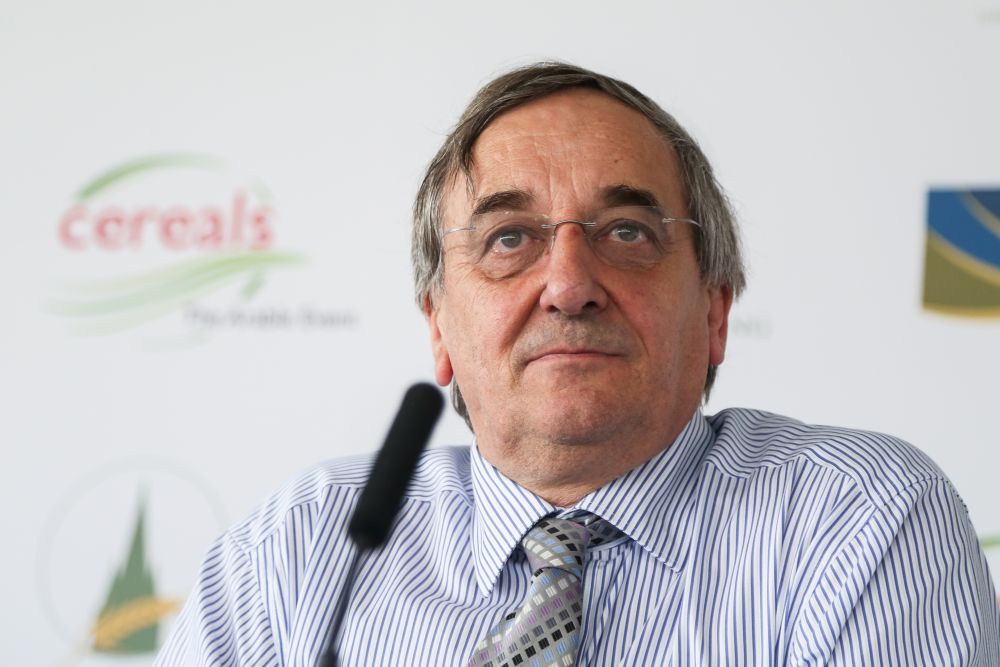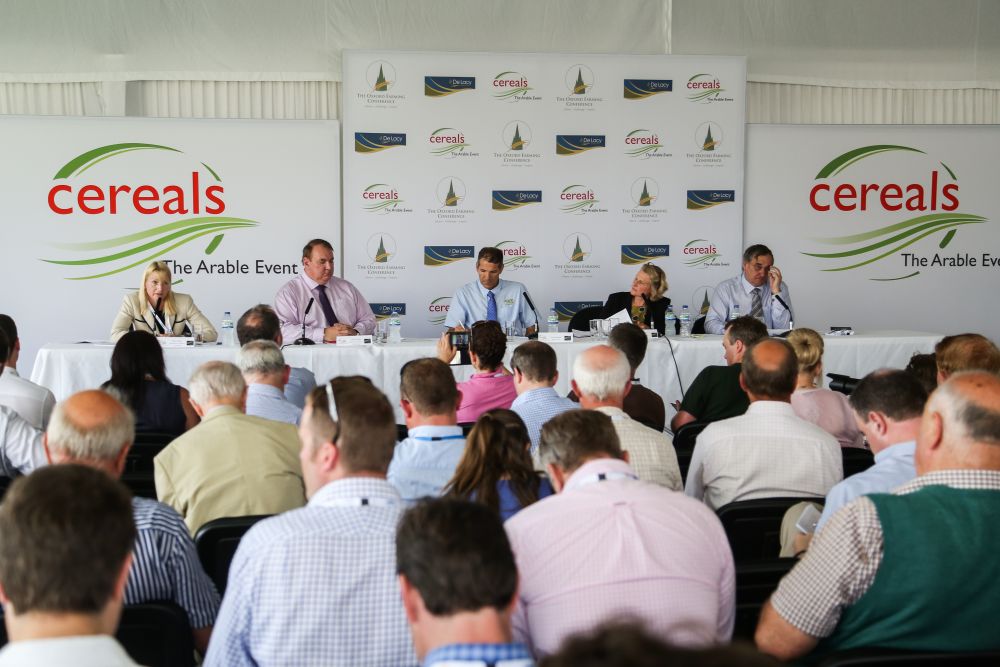
NFU president Meurig Raymond says the General Election result has completely changed the dynamics of the Brexit negotiations.
The NFU leader spoke to farmers during this year's Cereals event in Lincolnshire.
He said the result of the election, which led to the Conservatives losing their majority in the House of Commons, now made it more likely that the UK would look for a soft Brexit deal, seeking to remain a member of the European customs union.
"It has changed quite dramatically from the majority of the Cabinet looking for a fairly hard Brexit, even if it meant cliff edge," he said.
Theresa May and her Brexit chief, David Davis, had been looking for a hard break from the EU following last June's referendum.
In March the Government gave formal notice of the UK's intention to withdraw, leaving two years for negotiations.
However, the Prime Minister subsequently decided to call a General Election, saying that she wanted the electorate to give her a stronger mandate for the talks.
But her party lost seats, leaving Theresa May relying on the Democratic Unionist Party to prop her up.
'New dynamics'
Meurig Raymond said there were now "new dynamics around the Cabinet table."
He said he had been led to believe that the Chancellor of the Exchequer, Philip Hammond, was now pressing for the Government to opt for remaining in the European customs union, which would involve a U-turn on the Government's previous position.
"Whether he achieves that through the Brexit committee only time will tell," said the NFU leader.

"Those political dynamics have changed quite dramatically." He said free and frictionless trade was very important.
"With lorries parked up in Dover or the opposite direction and all the costs involved with certification in customs, these are just going to put us at a huge disadvantage from a farming perspective, where we export between three and four million tonnes of wheat, barley and oil seed into the European Union, 38 per cent of our sheep meat is exported to the European Union.
"Speaking to exporters, yes tariffs would have a big bearing on their ability to export, but it is those tariff barriers that would cause far more concern in the market place than maybe the tariffs themselves. It's the unknown cost."
'Integrated and complicated'
The European supply chain in the horticultural sector was as integrated and complicated as the motor car industry, he said.
People exported and imported on a daily basis. The knock-on effect of tariff barriers and customs checks would be "absolutely huge," he said.
Meurig Raymond was taking part in a discussion about what the future held for the UK in the wake of Brexit.
Also involved in the discussion were Ruth Bailey of the Agricultural Engineers Association (AEA), David Caffall of the Agricultural Industries Confederation (AIC) and Paul Temple of AHDB Cereals.
Ruth Bailey said that non-tariff barriers were of greater concern to her association than tariffs. "I don't want to see a great divergence of standards following Brexit."
David Caffall said he was concerned about uncertainty whilst negotiations were taking place between the UK and the EU.
He said important investment decisions were likely to be delayed or cancelled over the next 22 months.
Paul Temple said he was now hoping for a soft Brexit. All of the speakers were asked by a member of the audience how important it was that the UK remained a member of the European customs union. All four of them said it was their top priority in a any deal negotiated by the Government."
'Biggest industry in UK'
Meurig Raymond said that the food and farming industry was worth £108 billion and employed 3.9 million people.
"We are the biggest industry in the UK - bigger than the motor car industry and British aerospace put together. And it is the sector that has probably got most to lose if these negotiations around Brexit turn out to be a cliff edge - WTO - and they are not successful from a UK perspective," he said.
"Trade is going to be the top issue for us. We want that frictionless trade - no tariff barriers," he said.
"We have a huge success story. We export 20 billion tonnes of food out of the UK. Some of it is outside the European Union. We need to develop those markets; those are the opportunities that we must look for at the end of these negotiations.
"But, again, we must also remember that in the majority of farming sectors we are only 62 per cent self sufficient in food at home. The domestic market is going to be very important."
Good or bad trade deal
However, he said that negotiating a good trade deal with the European Union was the priority.
"If we end up with a fair trade deal, then I believe we can look forward in a very positive manner; we can be optimistic. Then we can be looking towards developing an ambitious domestic agricultural policy.
"But if we end up with a very bad trade deal, cliff edge, tariffs are all up, then the argument to Government will be that we will need a fair bit of support just to sustain an industry. It's that important.
"But, again, I believe that the political dynamics are moving towards an understanding of a more frictionless trade customs union - bespoke customs union. That is the view you pick up in Southern Ireland, the Irish border is going to have a big part to play in these negotiations," he said.
The NFU president said he had spoken to the new Environment Secretary, Michael Gove, and he said he had been heartened by what he said.
"I said to him I am looking for a secretary of state who is going to champion food and farming and is going to fight our case because we enter these negotiations next week around our Brexit withdrawal. I was heartened by what I heard."
The Cereals event is promoted as the arable industry's leading technical event. It was held on June 14 and 15 at Boothby Graffoe in Lincolnshire.
